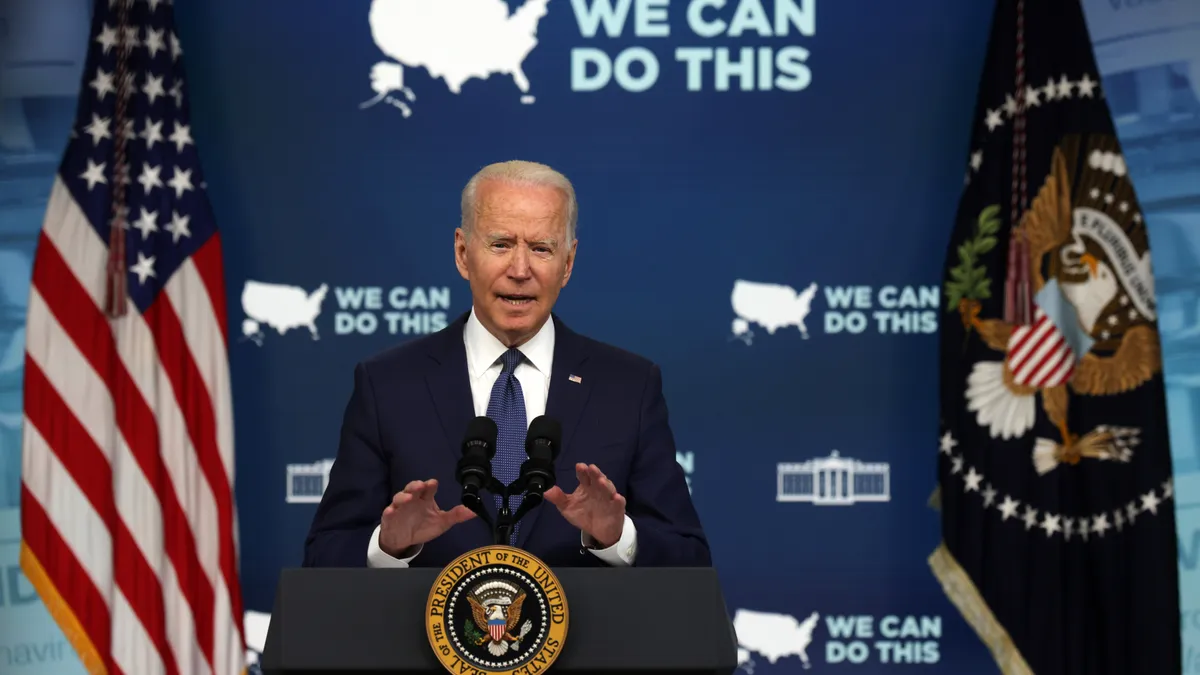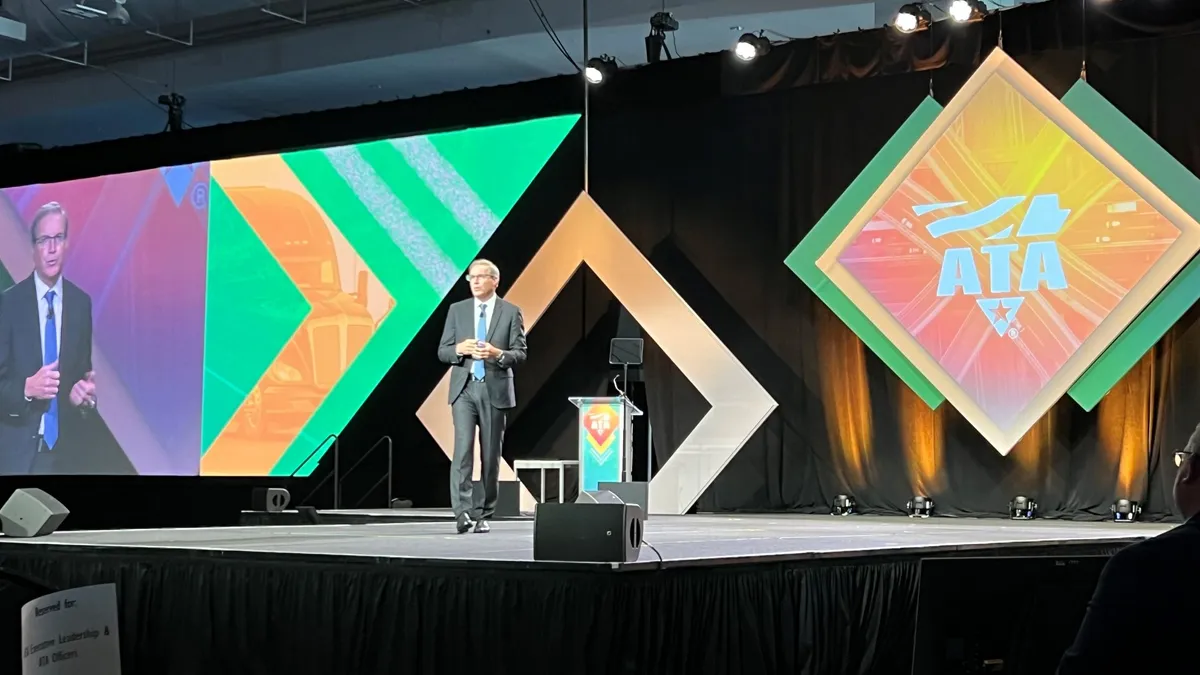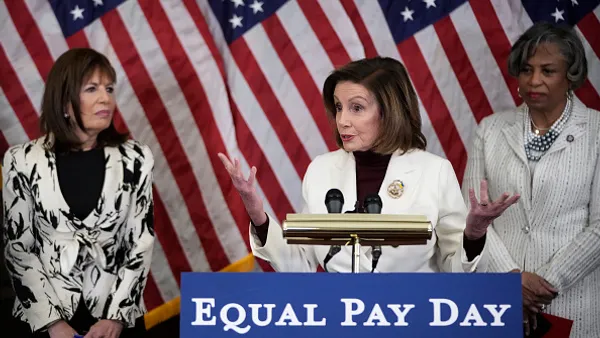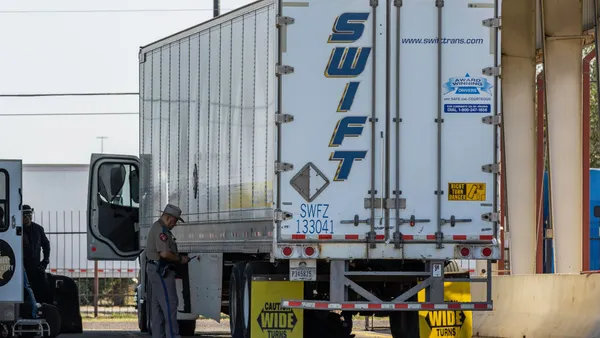Dive Brief:
- "Long COVID" may be considered a disability under the Americans with Disabilities Act, President Joe Biden said last week.
- "Many Americans who seemingly recover from the virus still face lingering challenges like breathing problems, brain fog, chronic pain and fatigue," Biden said in a speech marking the 31st anniversary of the statute. "These conditions can sometimes rise to the level of a disability."
- The president said his administration is working with agencies to ensure workers with persistent COVID-19 symptoms "have access to the rights and resources" provided by the ADA.
Dive Insight:
The Biden administration released several resources on long COVID's interaction with the ADA alongside the president's announcement. Among them, the U.S. Department of Health and Human Services published guidance saying that long COVID is considered a disability under Titles II and III of the ADA "if it substantially limits one or more major life activities" — the threshold the statute uses to define any disability.
HHS offered several circumstances in which long COVID may substantially limit a major life activity. Long-term coronavirus symptoms may disrupt breathing, eating or thinking — all major life activities. People whose COVID-related conditions qualify as disabilities are entitled to the same protections as anyone else with a disability, HHS said.
The guidance did not address Title I of the ADA, which governs private-sector employment. While the U.S. Equal Employment Opportunity Commission, which enforces Title I, has not made any statement about Biden's announcement or weighed in on long COVID, it uses the same standard HHS referred to in defining disabilities.
Long COVID affects somewhere between 10% and 30% of people who've contracted the virus, according to reporting by The Wall Street Journal. That figure includes those who experienced mild or asymptomatic infections.














